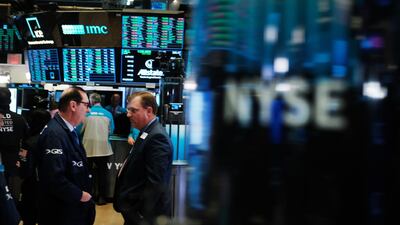Global economic growth is forecast to edge up to 2.5 per cent in 2020, a slight rise from 2.4 per cent in 2019, as investment and trade gradually recover from last year’s significant weakness but downward risks persist, the World Bank said in a report on Thursday.
Growth among advanced economies is anticipated to slip to 1.4 per cent in 2020, from 1.6 per cent last year, in part due to continued softness in manufacturing. Growth in emerging market and developing economies, on the other hand, is expected to accelerate this year to 4.1 per cent in 2020, from 3.5 per cent last year, on the back of an improved performance of a small group of large economies, which are shaking off economic sluggishness or stabilising after a recession.
About a third of emerging market and developing economies are projected to decelerate this year due to weaker-than-expected exports and investment.
“With growth in emerging and developing economies likely to remain slow, policymakers should seize the opportunity to undertake structural reforms that boost broad-based growth, which is essential to poverty reduction,” said Ceyla Pazarbasioglu, World Bank Group vice president for equitable growth, finance and institutions.
“Steps to improve the business climate, the rule of law, debt management and productivity can help achieve sustained growth.”
The multilateral lender also mentioned a number of risks to the global economy this year, including trade disputes and geopolitical tensions.
It said a sharper-than-expected growth slowdown in major economies such as China, the United States or the euro area would similarly reverberate widely.
A resurgence of financial stress in large, emerging markets, as experienced by Argentina and Turkey in 2018, an escalation of geopolitical tensions or a series of extreme weather events could all have adverse effects on economic activity around the world, according to the lender.
The report also highlighted mounting debt among emerging and developing economies over the past 50 years.
Public borrowing can be beneficial and spur economic development, if used to finance growth-enhancing investments such as infrastructure, health care and education, it said.
“And while currently low interest rates mitigate some of the risks, high debt carries significant risks. It can leave countries vulnerable to external shocks; it can limit the ability of governments to counter downturns with fiscal stimulus; and it can dampen longer-term growth by crowding out productivity-enhancing private investment,” the World Bank said.
Growth in the Middle East and North Africa is projected to accelerate to 2.4 per cent in 2020, largely driven by higher investment, promoted by public sector infrastructure initiatives and stronger business climates, the World Bank said.
Among oil exporters, growth is expected to pick up to 2 per cent. Infrastructure investment and reforms to improve the business climate are seen as advancing growth among the GCC economies to 2.2 per cent.
In the UAE, growth is forecast at 2.6 per cent in 2020 and 3 per cent for 2021 and 2022. The World Bank projected 1.8 per cent growth for the UAE's economy in 2019.
Oil prices are forecast to decline slightly to an average of $59 a barrel in 2020 and 2021. US supply is expected to continue to increase in 2020 as new pipeline capacity comes on stream, it said.


